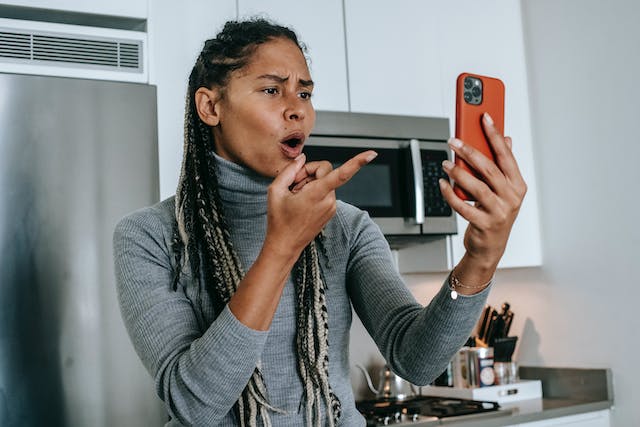Selling your car in Colorado can be a profitable endeavor, but it’s essential to be aware of potential scams. Scammers are becoming increasingly sophisticated, making it crucial for sellers to stay informed and cautious. This guide provides detailed insights into common scams and practical tips to avoid them, ensuring a safe and successful car selling experience.
Be Wary of Suspicious Communication
When selling your car in Colorado, paying close attention to the communication style and content of potential buyers is crucial. Scammers often give themselves away through their communication methods. They might use high-pressure tactics, have poor grammar and spelling, or make unusual requests that don’t align with typical car buying procedures. Being able to recognize these signs can save you from falling victim to a scam.
One common red flag is when a buyer communicates in a way that seems overly urgent. They might insist on rushing the sale, pushing for immediate payment or transfer of the vehicle without having seen it in person. This urgency is a tactic designed to pressure you into making quick decisions without proper due diligence. Legitimate buyers typically want to view the car, possibly more than once, and are willing to follow a reasonable timeline for the transaction.
- High-Pressure Tactics: Be cautious of buyers who try to rush you into selling the car, insisting on immediate decisions or payments.
- Poor Language Use: Scammers often have noticeable issues with grammar and spelling, which can be a sign that the inquiry is not legitimate.
- Unusual Payment Requests: Be wary of buyers who propose unconventional payment methods or transactions that don’t follow standard practices.
- Lack of Interest in Car Details: Genuine buyers usually ask detailed questions about the car’s condition, history, and maintenance. If a buyer shows little interest in these details, it could be a warning sign.
- Avoiding Personal Contact: If a buyer is reluctant to meet in person or talk over the phone, preferring to communicate only through email or text, this can be a red flag.
- Inconsistent Stories: Pay attention to inconsistencies in the buyer’s story or background information they provide.
- Unconventional Shipping Requests: Be wary of buyers who request to ship the car before payment is finalized or who suggest complicated shipping arrangements.
- Vague or Non-Existent References to the Car’s Ad: If a buyer doesn’t reference specific details from your ad, they might not have actually read it.
Verify Buyer Identity

Verifying the identity of your buyer is a critical step in safeguarding against scams. Scammers often provide false information or avoid sharing their identity altogether. For instance, they might refuse to meet in person or provide inconsistent details about themselves. Always ask for a photo ID and ensure it matches the person you’re dealing with and the information they’ve provided.
- Request Photo ID: Always ask for a photo ID and ensure it matches the person you’re dealing with.
- Cross-Check Information: Verify the details provided by the buyer, such as their name and address.
- Inconsistencies in Story: Be alert to any inconsistencies in the buyer’s story or reluctance to share personal information.
Beware of Overpayment Scams
Overpayment scams are particularly common in car sales. In this scenario, a buyer might send a check for an amount greater than the selling price and then request the difference be returned. Unfortunately, the check is often fraudulent, and by the time it bounces, the scammer has already received the refund, leaving the seller at a loss.
- Suspicious Overpayment: Be wary if a buyer wants to pay more than the asking price.
- Refund Requests: Avoid any transactions where the buyer asks for a refund of the overpaid amount.
- Verify Funds: Always verify the authenticity of the check with the issuing bank before proceeding with any refunds.
By understanding these common scams and taking the necessary precautions, you can significantly reduce the risk of falling victim to fraud when selling your car in Colorado. Stay vigilant, verify buyer information, and always trust your instincts during the selling process.
Understand Safe Payment Methods
Choosing safe payment methods is crucial in car sales. Cash is often the safest and most straightforward method, especially for lower-priced vehicles. For higher amounts, consider secure options like bank transfers or cashier’s checks. However, even with these methods, it’s important to verify the funds. For instance, with a cashier’s check, contact the issuing bank to confirm its legitimacy before finalizing the sale.
- Cash Transactions: Ideal for lower-priced vehicles and ensures immediate payment.
- Bank Transfers: Secure for larger amounts but verify the transfer with your bank.
- Cashier’s Checks Verification: Always contact the issuing bank to confirm the check’s authenticity.
Avoid Personal Information Disclosure
During the car selling process, safeguarding your personal information is as important as securing the transaction. Scammers might ask for personal details like your social security number or bank account information, often under the guise of necessary paperwork or payment processes. It’s crucial to remember that such information is not required for a car sale and sharing it can put you at risk of identity theft.
- Limit Personal Data Sharing: Only share information that is necessary for the sale.
- Beware of Unusual Requests: Be cautious if a buyer asks for sensitive personal information.
- Secure Communication Channels: Use secure methods for communication and avoid sharing personal details via email or text.
Conduct Transactions in Public Places
Meeting in a public place for transactions and test drives adds a layer of safety for both parties. Public places like shopping mall parking lots or police station parking areas are ideal as they are often under surveillance and have a regular flow of people. Avoid inviting potential buyers to your home or going to their residence, as this can increase the risk of scams or personal harm.
- Choose Public Venues: Opt for well-lit, populated areas for meetings.
- Avoid Private Meetings: Never invite potential buyers to your home or agree to meet at their residence.
- Police Station Parking Lots: These are often considered safe spaces for conducting such transactions.
